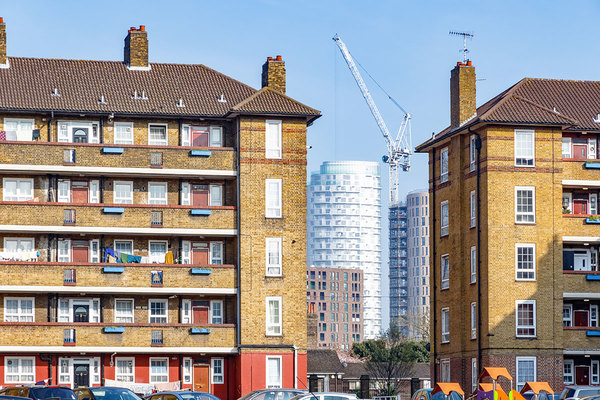You are viewing 1 of your 1 free articles
Council debt settlements risk hurting existing tenants and should be recalculated
Unless self-financing debt allocations are reset to take into account lower-than-expected income, councils will struggle to maintain existing stock, writes Martin Wicks
Self-financing for councils was introduced as part of the 2011 Localism Act.
The act gave government the power to ‘reopen the settlement’; that is the amount of debt redistributed to each local authority in 2012.
It allows the government to make ‘payments’ to councils “if there has been a change on one of the factors taken into account in calculating the previous payment”.
In practice this would mean cutting the debt they were given because the ‘previous payment’ is now out of sync with their actual income.
Government guidance said this was necessary to “protect both the government and local authorities from being locked into a deal that, because of changes to policy affecting either a landlord’s income or costs, no longer reflects a fair valuation and could have a material impact on viability”.
Today councils are locked into such a deal as a result of government policies such as the enhanced Right to Buy and the four-year rent cut.
“The previous payment is out of sync with councils’ actual income.”
A fourfold increase in Right to Buy sales has led to councils losing much more rent than was calculated in the settlement.
The rent cut has had an even greater cumulative impact.
In the last financial year alone, provisional data showed that councils collected £124m less rent than the previous year, while their overall income fell by £312m, or 3.5%.
Debt and interest charges remain at around 25% of annual income, at £2.1bn, official statistics show.
Councils are losing hundreds of millions of pounds each in rental income over the course of their 30-year business plans.
Swindon, for instance, is estimated to take in around £360m less than planned for in 2012. Some councils are losing even more.
The consequence for all Housing Revenue Accounts (HRAs) to one degree or another is that they are cutting back on planned work on renewal of key housing components.
In the case of Swindon, a recent stock condition survey proposed spending £7m a year for the next 10 years to carry out structural work on ‘non-traditional’ (pre-fabricated) stock. This work was considered necessary to prolong the life of these properties.
However, over the next four years the council is proposing to spend just £1.75m on them, as it spends £15m worth of work on high rise blocks
“Unless this under-funding is addressed then we are faced with the prospect of deterioration in the quality of our homes.”
Swindon has insufficient funds for competing priorities because of the impact of government policies on rent income. We know this situation is replicated nationally.
Fundamentally HRAs do not have sufficient funding for the maintenance and renewal of their stock over the long term.
Landlords have complained about the lost rent income.
However, there has been no co-ordinated demand that the government reopen the settlement and at least adjust the 2012 ‘debt’ in line with the difference between the business plan income projections and what councils are actually collecting.
From the point of view of the interests of current and future tenants, unless this under-funding is addressed then we are faced with the prospect of deterioration in the quality of our homes.
If councils fail to renew key components (bathrooms, kitchens, roofs etc) in good time then maintenance costs will increase as components fail and living conditions will deteriorate. The life of stock may be shortened.
The Localism Act gives the government power to reopen the settlement and adjust the debt in line with lost income. What is urgently required is a concerted campaign to demand this.
It is not hyperbole to describe this as a crisis. If HRAs continue to be under-funded the consequence will be a rise in the numbers of ‘non-decent’ homes.
These are not just statistics – they are the living conditions of tenants.
Any readers who agree with us and would like to help us campaign on this issue can email us at stcg@btinternet.com.
Martin Wicks, secretary, Swindon Tenants Campaign Group












